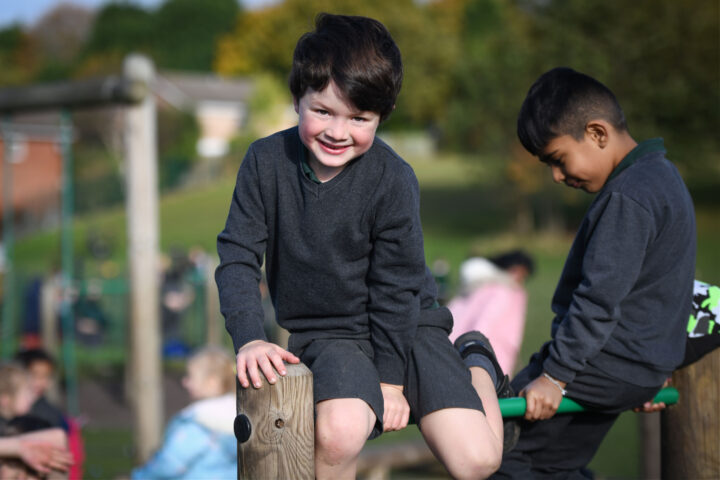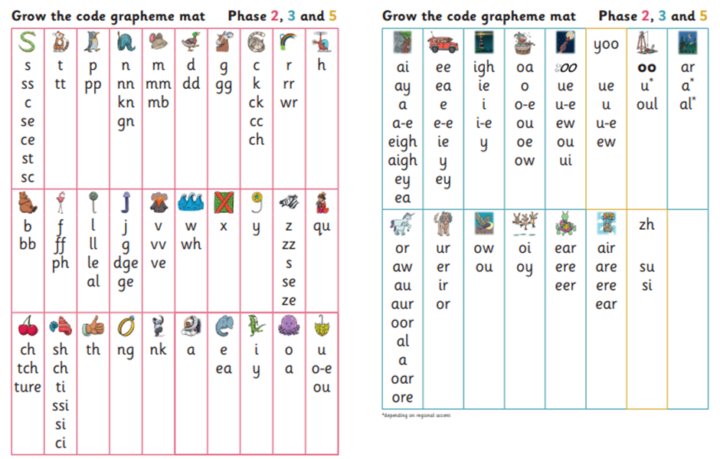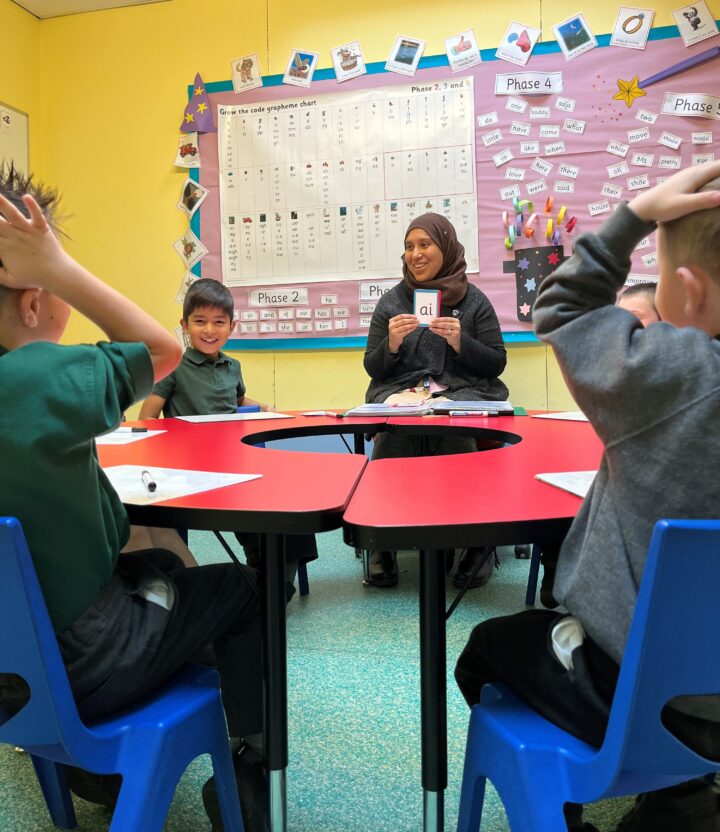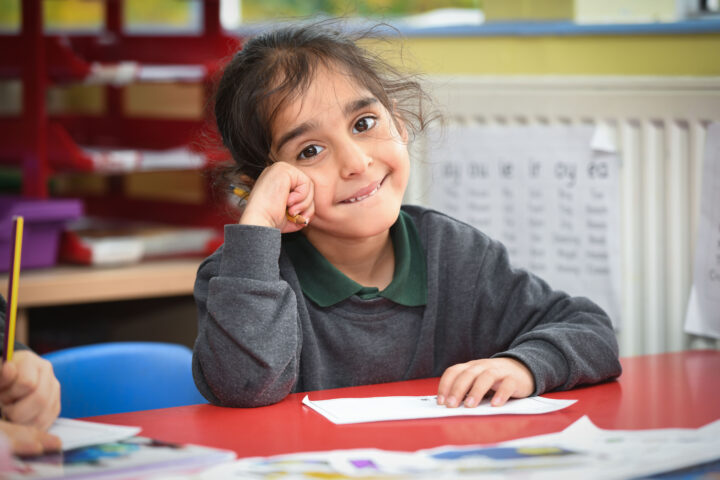Year 1

Year 1
Our aim in Year 1 is to build on the foundations laid in the Early Years Foundation Stage so our children continue to make rapid and sustained progress with their learning. We pride ourselves on happy, confident and curious learners who are developing greater levels of independence and motivation to succeed academically.

Teaching every child to read fluently continues to be a primary focus. We teach early reading and phonics through Little Wandle Letters and Sounds Revised, a highly structured systematic synthetic phonics (SSP) programme, building on their knowledge and understanding from their teaching in Reception. Each week, children take part in daily phonics sessions, learning four new/alternative graphemes, as well as a weekly review session. At the start of the Autumn term, we revisit Phase 3 phonemes taught in Reception. By the end of the first half term, children are beginning to learn Phase 5 phonemes and reading words/sentences containing these graphemes. We continue to build on Phase 5 phonic knowledge until the Summer term by ‘growing the code’ (teaching alternative graphemes that have the same phoneme). See below.

Alongside the daily teaching of phonics, all children are assigned a stage appropriate and fully decodable reading book. These books are carefully matched, by class teachers, to prior phonic knowledge and skills, so that children can read fluently and independently. Ongoing assessment ensures that children will be able to read 90% of assigned texts (9 out of 10 words) correctly, using their prior phonic knowledge enabling each child to see themselves as a successful reader, developing further confidence in their reading ability. Each child reads the same book three times in school. Each read begins with a revisit and revise of previously taught Grapheme Phoneme Correspondences (GPCs) and words, including new vocabulary and tricky words appearing in the text, followed by sessions practicing decoding skills, prosody (intonation and expression) and comprehension skills.

In Year One, children are prepared for the Phonics Screening Check which is administered in the Summer term. Its sole purpose is to determine whether a child can phonetically decode single words to an annually predetermined national standard.
In Writing, children are taught to use their tricky word knowledge combined with their phonic knowledge to write sentences. So that children are successful writers their sentence writing is often dictated so that teachers are able to scaffold the exclusive use of known graphemes. Alongside this we explicitly teach vocabulary which we encourage our children to use orally in the re-telling of familiar stories and in role play. Children are encouraged to ‘have a go’ at spelling when writing independently, by segmenting (sounding out words phonetically) that they have already learned. During the teaching of writing the children will be encouraged to use the correct letter formation, capital letters, full stops, adjectives, and conjunctions whilst writing for a range of genres.
At Hill West we teach Mastering Number alongside the progressive short blocks devised by CanDo Maths to ensure that children have regular opportunities to revisit and recall prior learning alongside acquiring new mathematical skills and knowledge through fluency, problem solving and reasoning. This means we focus on ensuring that all children have a solid, concrete understanding of subject knowledge and skills. We take learning at a steadier and deeper pace, ensuring that no child is left behind, as well as providing deeper and richer experiences for children who are working above the national expectation for their age. Children build upon their learning from Reception and can reason and problem solve with growing confidence.
In Science, children begin to work scientifically, completing simple science investigations and observations. They also widen their subject knowledge through discovering changes in the environment including; seasons, naming, describing and sorting materials, identifying different types of plants and naming and describing animals.
Children also experience wider curriculum subjects such as: Music; where they perform as part of a group and learn to play un-tuned instruments; Geography where they learn our world is made up of different continents, explore life in the Artic and learn about the four seasons and undertake a local study of where they live; Art; where they learn about different art movements and artists such as Andy Warhol and Henry Rousseau, History; where they study famous people of the past including Grace Darling; P.E where they develop greater levels of fine and gross motor skills through multi-skill activities as well as competitive games and dance.

Key Questions to drive learning and progress
- What will we build together in Year 1?
- Is there only one way to be a lion?
- Where are the wild things?
- Will Traction man save the Day?
- Where do you think the ocean meets the sky?
- Why did they think the duckling was ugly?
- Can penguins live in Birmingham?
- Is it OK to be different?
Exciting events in Year 1
- We visit exciting places such as The Hippodrome, Hatton Country Farm, Castles and our local nature reserve as part of our learning experience.
- We undertake our phonics screening check in the Summer Term.
- We perform to a live audience
Class Novels include
Flat Stanley by Jeff Brown, The Twits by Roald Dahl, The Hodgeheg by Dick King-Smith, A Bear Called Paddington by Michael Bond, Illustrated Grimm’s Fairy Tales and The Owl Who Was Afraid Of The Dark by Jill Tomlinson.
